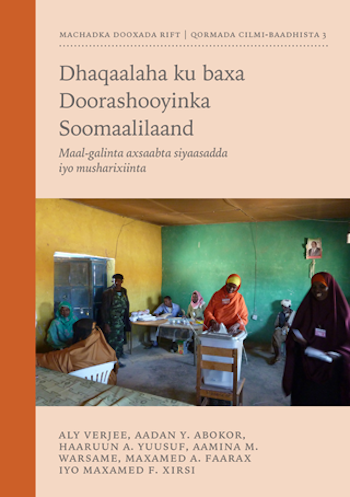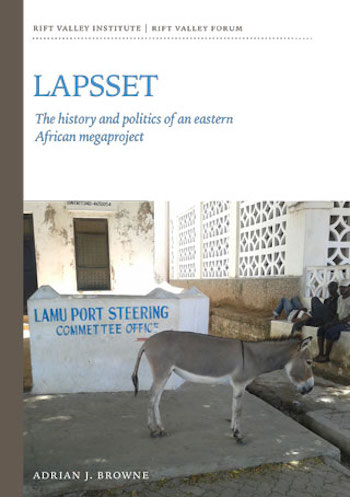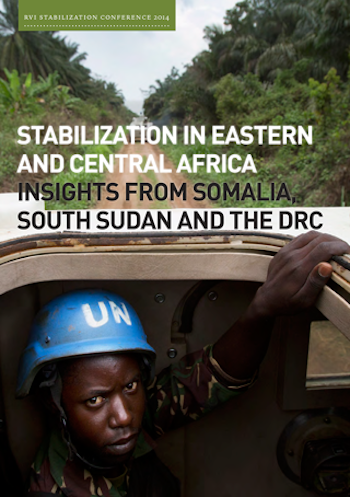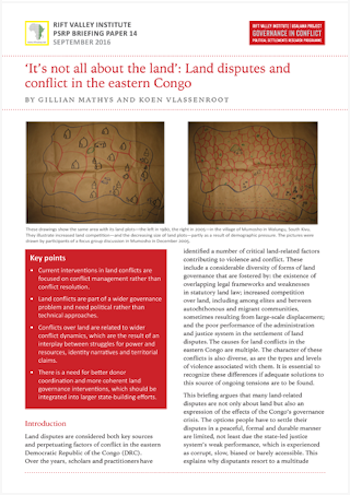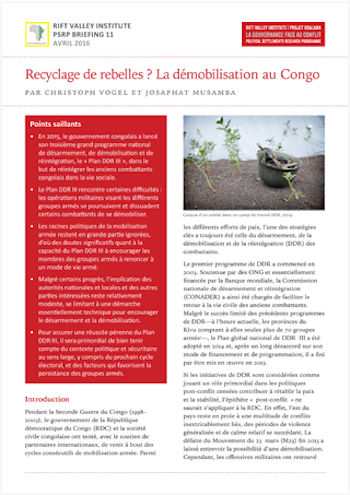The DRC has a bad reputation when it comes to gender equality and respect for women’s rights. Until now, the donor community and international media have mostly been focusing on sexual and gender-based violence (SGBV) in the eastern part…
RVI publishes books, research reports, research papers, briefings and meeting reports in a range of formats. Publications cover policy, research, arts, culture and local knowledge in the countries of eastern and central Africa. Research publications—books, reports and papers—are peer-reviewed. Some RVI publications are also available in French and/or Arabic.
The RVI is a signatory of the Budapest Open Access Initiative (2001); all publications are free for download in PDF format under Creative Commons licences. The views expressed in books and reports published by the RVI are those of the authors, not the Institute.
SEARCH
PUBLICATION TYPE
LANGUAGE
REGION
COUNTRY
In September 2014, a conflict erupted between South Sudanese and Ugandans in the borderlands of Kajokeji County, South Sudan and Moyo District, Uganda. Several people were killed, many more injured and thousands displaced. In Dividing Communities in South Sudan and…
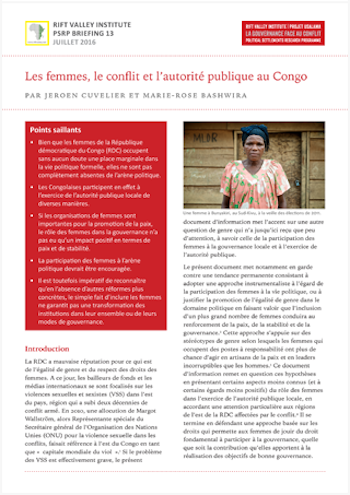
- By Jeroen Cuvelier, Marie-Rose Bashwira
- Download
La RDC a mauvaise réputation pour ce qui est de l’égalité de genre et du respect des droits des femmes. A ce jour, les bailleurs de fonds et les médias internationaux se sont focalisés sur les violences sexuelles et…
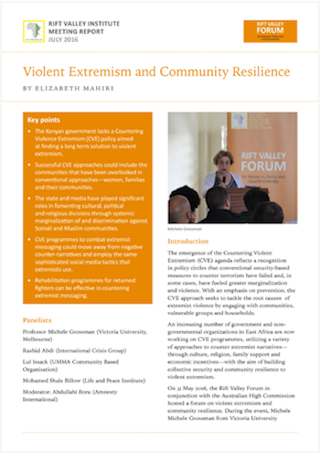
- By Elizabeth Mahiri
- Download
Key points The Kenyan government lacks a Countering Violence Extremism (CVE) policy aimed at finding a long term solution to violent extremism. Successful CVE approaches could include the communities that have been overlooked in conventional approaches—women, families and their…
‘Xogta ku jirta warbixntu waa dhab iyo ‘xaqiiqo’…waxa jira wax badan oo arintan laga baranayo.’ SUCAAD IBRAAHIM, PROGRESSIO, SOOMAALILAAND ‘Daraasaddani waa mid gaar ah sababtuna waa su’aasha laga duulayo, waxana taa kasii muhiimsan, waa jiritaanka iyo muhiimadda wixii ka…
‘This study is in-depth, up-to-date and the first of its kind on a massive infrastructure development project in the region, examining its history, politics, evolution, the emergence of actors and interests and effects on the poor and marginalized. It…
‘The conference has put into perspective what stabilization means in South Sudan as opposed to what it means in Somalia and in the DRC. And putting my own insights on stabilization alongside those of the speakers here has given…
‘Waa sheeko ka mid ah kuwii ugu xiisaha badnaa ee aan la kulmo, oo ka warramaysa waayoaragnimada qurbaawi Soomaali ah, oo ka raadsanaya meel kale, nolol aayatiin dhaanta tan aan xasilloonayn ee geyiga Soomaalida. Akhriskeedu waxa uu ii noqdey…
Land disputes are considered both key sources and perpetuating factors of conflict in the eastern Democratic Republic of the Congo (DRC). Over the years, scholars and practitioners have identified a number of critical land-related factors contributing to violence and…
Pendant la Seconde Guerre du Congo (1998–2003), le gouvernement de la République démocratique du Congo (RDC) et la société civile congolaise ont tenté, avec le soutien de partenaires internationaux, de venir à bout des cycles consécutifs de mobilisation armée….
Recent Publications

Political Economy of Cash and Markets in Sudan
February 27, 2026
The research provides a snapshot of the war in Sudan in the period from February to April 2025. However, the war is dynamic, with political alliances and territorial control changing. The April 2023 conflict between the Sudan Armed Forces (SAF)

Rethinking Ethiopia II: Youth and politics
February 26, 2026
Seminar report Rethinking Ethiopia, a collaborative essay competition initiative between Addis Ababa University’s Institute for Peace and Security Studies (IPSS) and the Rift Valley Institute’s (RVI) Peace Research Facility (PRF), offers a platform for Ethiopian youth to express their ideas

2025 Year in Review
February 16, 2026
The 2025 Year in Review provides an overview of the Rift Valley Institute’s work over the past year across eastern and central Africa. The report highlights RVI’s research and publication outputs, education and training activities, and public forums and convenings,


